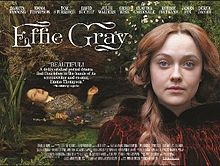
It’s an island, babe. If you don’t bring it here you won’t find it here. Robin Monroe (Anne Heche) is a New York City journalist who works for Dazzle, a fashion magazine run by editor Marjorie (Alison Janney). She is invited by her boyfriend Frank Martin (David Schwimmer) to spend a week holidaying with him on the South Sea island paradise of Makatea. The final leg of their journey via Tahiti is in a small dilapidated aeroplane, piloted by disgruntled middle-aged American Quinn Harris (Harrison Ford). They are accompanied by Quinn’s dancer girlfriend and co-pilot Angelica (Jacqueline Obradors). Frank proposes marriage but Robin is immediately needed on a photoshoot on Tahiti and hires Quinn to take her there. They crash in a storm on a deserted island with no beacon – they are lost. While they fight pirates led by Jager (Temeura Morrison) who they’ve witnessed murdering a yacht owner, Frank and Angelica console each other on Makatea and spend the night together. Robin and Quinn escape into the island’s jungle where they find an old Japanese warplane which Quinn manages to get up and running with Robin’s help. They are falling in love with each other. As they start up the plane on the beach Jager spots them and trains his weapons … I’ve flown with you twice. You’ve crashed half the time. Ivan Reitman knows how to handle stars and this Michael Browning screenplay plays perfectly to the strengths of Ford and Heche (and even Schwimmer, doing a Ross from Friends-type schlub act) keeping just this side of outrageous screwball antics (it helps to introduce some vicious armed pirates). It’s breezy fun, with some shrewd observations about the sexes, the virtues of being with the right person and even addresses the age difference between Robin and Quinn – You deserve someone fresh, he observes. Cute romcom fare with glorious location photography. Great fun. This experience has tested me and revealed no character whatsoever








